I wrote a simple C++ program, here’s the code:
// Вариант 72, задача 2.18
#include <iostream>
#define lint long long int
using std::cin;
using std::cout;
void input(lint arr[], lint arrLen) {
for (lint i = 0; i < arrLen; ++i) {
cout << "arr[" << i << "] = ";
cin >> arr[i];
}
}
void output(lint arr[], lint arrLen) {
for (lint i = 0; i < arrLen; ++i) {
cout << "newArr[" << i << "] = " << arr[i] << '\n';
}
}
bool isNumberInArray(const lint arr[], lint arrLen, lint number) {
bool isNumberPresent = false;
for (lint i = 0; i < arrLen; ++i) {
if (arr[i] == number) isNumberPresent = true;
}
return isNumberPresent;
}
void process(const lint arr[], lint arrLen, lint newArr[], lint &newArrLen, lint m, lint M) {
newArrLen = 0;
for (lint i = M; i >= m; --i) {
if (!isNumberInArray(arr, arrLen, i)) {
newArr[newArrLen] = i;
++newArrLen;
}
}
}
int main() {
lint arrLen, m, M;
cout << "Enter m\n> ";
cin >> m;
cout << "Enter M\n> ";
cin >> M;
cout << "Enter array length\n> ";
cin >> arrLen;
lint *arr = new lint[arrLen];
cout << "Enter array elements:\n";
input(arr, arrLen);
lint *newArr = new lint[arrLen], newArrLen;
process(arr, arrLen, newArr, newArrLen, m, M);
cout << "\nResults:\n";
output(newArr, newArrLen);
delete[] arr;
delete[] newArr;
return 0;
}
When I compile it using MSVC (x86 | Debug) and run it, it normally works and produces the desired result, but after execution shows the following error:

I tried to compile a program under WSL using g++ and debug it with Valgrind. Here is what I got:
root@seiba-laptop : /mnt/c/Users/saber-nyan/source/repos/Project1/Project1
[130] # g++ ./main.cpp -O0 -ggdb -o ./main
root@seiba-laptop : /mnt/c/Users/saber-nyan/source/repos/Project1/Project1
[0] # valgrind ./main
==316== Memcheck, a memory error detector
==316== Copyright (C) 2002-2017, and GNU GPL'd, by Julian Seward et al.
==316== Using Valgrind-3.14.0 and LibVEX; rerun with -h for copyright info
==316== Command: ./main
==316==
==316== error calling PR_SET_PTRACER, vgdb might block
Enter m
> 1
Enter M
> 5
Enter array length
> 2
Enter array elements:
arr[0] = 4
arr[1] = 2
==316== Invalid write of size 8
==316== at 0x1093A4: process(long long const*, long long, long long*, long long&, long long, long long) (main.cpp:34)
==316== by 0x1094E4: main (main.cpp:57)
==316== Address 0x4d60560 is 0 bytes after a block of size 16 alloc'd
==316== at 0x483850F: operator new[](unsigned long) (vg_replace_malloc.c:423)
==316== by 0x1094BA: main (main.cpp:55)
==316==
Results:
newArr[0] = 5
newArr[1] = 3
==316== Invalid read of size 8
==316== at 0x1092B7: output(long long*, long long) (main.cpp:18)
==316== by 0x10950A: main (main.cpp:60)
==316== Address 0x4d60560 is 0 bytes after a block of size 16 alloc'd
==316== at 0x483850F: operator new[](unsigned long) (vg_replace_malloc.c:423)
==316== by 0x1094BA: main (main.cpp:55)
==316==
newArr[2] = 1
==316==
==316== HEAP SUMMARY:
==316== in use at exit: 0 bytes in 0 blocks
==316== total heap usage: 5 allocs, 5 frees, 74,784 bytes allocated
==316==
==316== All heap blocks were freed -- no leaks are possible
==316==
==316== For counts of detected and suppressed errors, rerun with: -v
==316== ERROR SUMMARY: 2 errors from 2 contexts (suppressed: 0 from 0)
What is the problem and how to fix it?